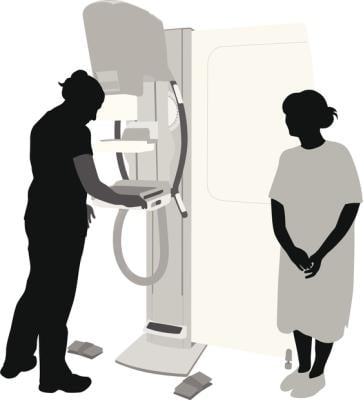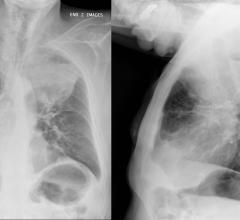
Getty Images
January 24, 2023 — For patients with cancer, lengthy delays in treatment can decrease their chances of survival. In an analysis of 2004–2017 information on patients with breast cancer in North Carolina, Black patients were more likely to experience such treatment delays than non-Black patients. Also, patients living in certain geographic regions of the state, regardless of race/ethnicity, tended to experience delays. The research is published by Wiley online in CANCER, a peer-reviewed journal of the American Cancer Society.
For the study, Katherine E. Reeder-Hayes, MD, MBA, MS, of the UNC Lineberger Comprehensive Cancer Center and her colleagues examined data on patients with stage I–III breast cancer who received surgery or chemotherapy as their first treatment and were listed in the Cancer Information and Population Health Resource, which links cancer registry and sociodemographic data to insurance claims. The research team defined a delay as >60 days from diagnosis to first treatment.
Among 32,626 patients, 19% were Black. Investigators found that 15% of Black patients experienced treatment delays compared with 8% of non-Black patients. Also, patients living in certain regions of the state were more likely to experience delays, with those in the highest-risk region being twice as likely to experience a delay as those in the lowest-risk region. This was the case for both Black and non-Black patients.
The magnitude of the racial gap in treatment delay varied by region, from 0.0% to 9.4%.
“On average, about 1 in 7 Black women in our study experienced a lengthy delay, but this risk varied depending on where the woman lives in the state. These delays weren’t explained by the patient’s distance from cancer treatment facilities, their specific stage of cancer or type of treatment, or what insurance they had,” said Dr. Reeder-Hayes. “These findings suggest that the structure of local health care systems, rather than characteristics of the patients themselves, may better explain why some patients experience treatment delays and other adverse cancer outcomes.”
The researchers are currently working on developing and testing tools for helping patients communicate about delays they’re experiencing, and for alerting health care systems early when a patient’s cancer treatment plan may be getting off track.
For more information: https://www.wiley.com/en-us
Related Breast Density Content:
AI Provides Accurate Breast Density Classification
VIDEO: The Impact of Breast Density Technology and Legislation
VIDEO: Personalized Breast Screening and Breast Density
VIDEO: Breast Cancer Awareness - Highlights of the NCoBC 2016 Conference
Fake News: Having Dense Breast Tissue is No Big Deal
The Manic World of Social Media and Breast Cancer: Gratitude and Grief
Related Breast Imaging Content:
Single vs. Multiple Architectural Distortion on Digital Breast Tomosynthesis
Today's Mammography Advancements
Digital Breast Tomosynthesis Spot Compression Clarifies Ambiguous Findings
AI DBT Impact on Mammography Post-breast Therapy
ImageCare Centers Unveils PINK Better Mammo Service Featuring Profound AI
Radiologist Fatigue, Experience Affect Breast Imaging Call Backs
Fewer Breast Cancer Cases Between Screening Rounds with 3-D Mammography
Study Finds Racial Disparities in Access to New Mammography Technology


 April 25, 2024
April 25, 2024 








